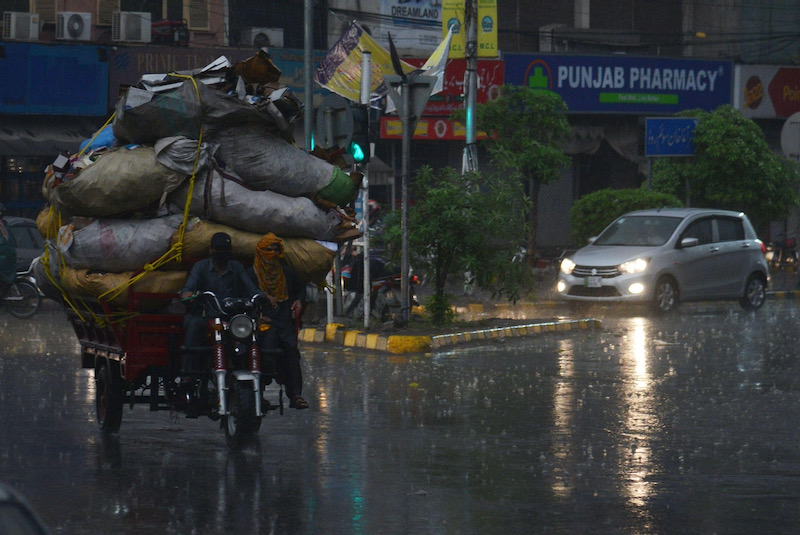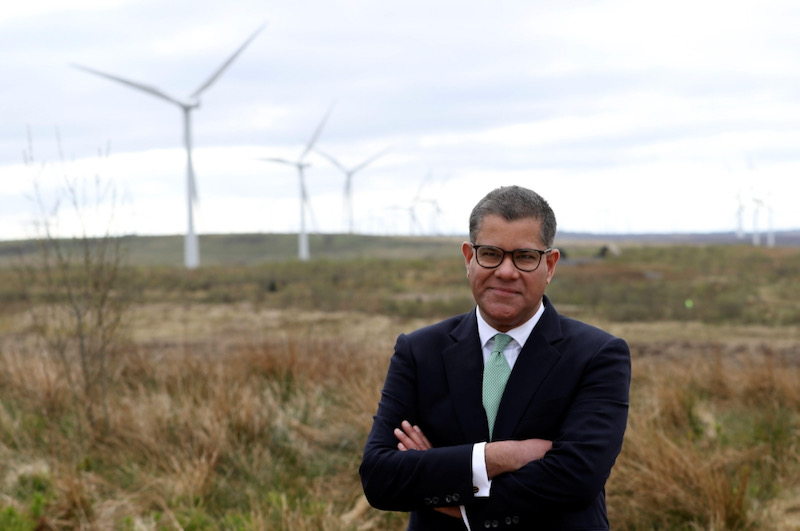This week, the UK’s COP26 president-designate Alok Sharma visited the Vatican City to meet Catholic Church leaders.
Hoping to discuss the importance of international unity when supporting communities most vulnerable to the impacts of the changing climate, the best thing that Mr Sharma can do in these talks is listen to what faith leaders are already saying.
Throughout his papacy, Pope Francis has been clear about what is needed from governments to address the issues of the climate crisis. While this government has presented targets on carbon emission cuts, what is lacking is the policy framework and financial commitment to make it real.
In the fight to tackle the climate emergency, the Catholic Church in the global south is already on the frontlines, offering support to vulnerable communities to adapt to and respond to this crisis.
For example, just last week in Brazil, 60 Amazonian bishops came together to call on the Brazilian senate urgently to halt a harmful environment proposal, writing: “Any change in policy must support forest conservation and guarantee the rights of the populations that protect it.”
In his talks at the Vatican, Mr Sharma, I hope, would have also discussed how to help secure climate finance and debt solutions to support countries in the global south to move towards a green and resilient recovery from Covid-19.
This is something that the Pope has been saying since the start of the pandemic, so I'm sure he will be reinforcing his message on debt cancellation which will allow countries to respond to the Covid health crisis and build back better, more sustainable economies.
For decades, faith groups, including Cafod, have been campaigning for the cancellation of all debts – a crucial issue for development. As Covid-19 has the potential to push more than 100 million people into extreme poverty, this issue is now more pressing than ever. We have welcomed the commitments so far – especially the temporary suspension of bilateral debt to 40 countries – but, despite this, the burden of debt to private banks and financial institutions remains in place.
For many years, Pope Francis has been outspoken about the need for a “radical conversion to a new society – where our politics, economy and social organisation benefit our planet and all those who depend on it in a fair and just way”.
The Pope has been loud and clear about the responsibilities of governments to create a just, fair, and greener world. Calling on all of us to use our imagination and creativity to tackle global problems together, he has said: “That means investing in health and social care, green jobs or renewable energy sources, strengthening the social safety net or introducing a basic income.”
Last Saturday at the Vaxlive concert, the pontiff joined with President Joe Biden, in calling for urgent action for a Covid vaccine patent-waiver so that the world’s most vulnerable communities get swifter access to lifesaving Covid-19 vaccines. In his latest statement, he told rich nations to enable the waiving of intellectual property rights to the vaccines to ensure that there is a just and fair distribution.
His leadership has already inspired more than 100 religious leaders and faith-based aid agencies, as part of the People’s Vaccine Alliance, to join together to call for vaccine production to be ramped up so there are sufficient doses for every person in the world.
Pope Francis knows that we cannot stand by and watch the world’s poorest continue to suffer sickness, bereavement, and economic devastation – alongside suffering the worst impacts of the climate emergency.
I hope that Mr Sharma listens to Pope Francis’ message: that the voices of the world’s poor, those who pay the biggest price for climate change, are heard at the climate negotiation table.
Meeting Vatican leaders and listening to the crucial and valuable role the Church plays in communities, Mr Sharma should not fail to bring the message of climate and global justice for the world's poorest families when he leads discussions next month at Cornwall’s G7 Summit.



 Loading ...
Loading ...
What do you think?
You can post as a subscriber user ...
User comments (0)